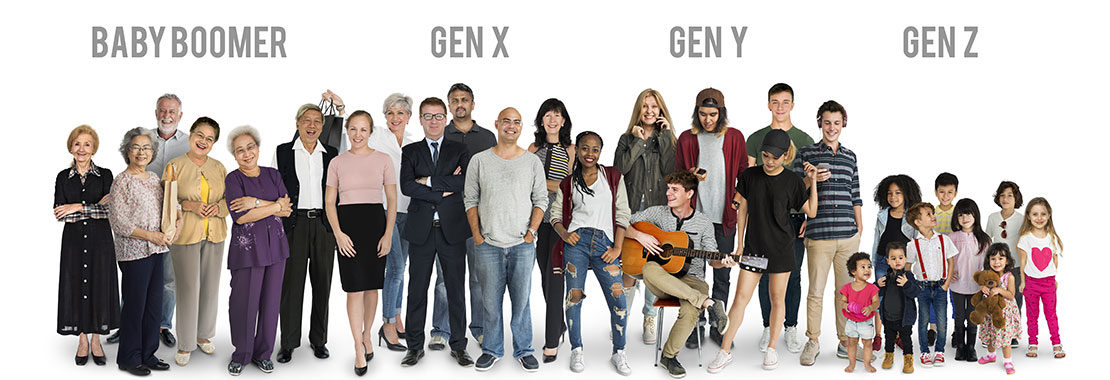For those of us who have been teaching for two or more decades, we have faced several generations of students. Each has brought challenges that required assessment of our methods.
Baby Boomers
Born 1946 to 1964: the years are approximate and overlap. Many grew up in a very structured and well-disciplined household, which led to respect for authority. They were confident professionals who generally made good decisions and were good students. They were hard-working and took their responsibilities seriously. In many respects, they were the easiest to teach because of their uniformity and desire to learn. They came to lectures and did their homework without much access to technology.
Gen X’ers
1965 to 1979: were independent, resourceful, and self-sufficient. They valued freedom and responsibility in the profession, but they could display a casual disdain for authority on occasion. They did not want to be micro-managed or have structured work hours. They missed more classes. They wanted the freedom to set their hours as long as they get the job done. This generation saw the increased usage of computer technology in teaching, such as PowerPoint presentations and computer homework.
Gen Y or Millennials
1980 to 1999: are tech-savvy and goal-oriented. They grew up with their laptops and cell phones. They communicate through text messaging and other social media, but they are also team-oriented and want guidance and feedback. These characteristics led to more use of groups and teams. These students are open to new ideas and new ways of doing things.
Gen Z
2000-2012: the first members of Gen Z turned 18 in 2018. Each generation brings new challenges to the Accounting instructor and Gen Z is no exception. What characteristics do they bring to your classroom? Here art a few possibilities. They are motivated by security more than money. They want to be well prepared for a good job.
They are racially diverse and are comfortable working in diverse groups. They want to make a difference. They do not know a world before the Internet. They are good at multi-tasking. They have faced constant updates to their connected world. They understand the need for skills development, but they are not taken to teamwork as much as their predecessors were. They want independence and their own space. They can work anywhere. They can do all the homework and preparation for class in a coffee shop.
This changes the way we need to organize our courses for Gen Zs. We will do more distance learning. We will use group activities less. Students will not carry a textbook around. Many get their texts electronically one chapter at a time. They expect to get their information online and submit their assignments that way. Many would just as soon never come to class.
These generations of students certainly overlap in their characteristics, but each has its own characteristics and expectations. Your challenge will be the handle classes that have representatives of various generations.
Note: below are links where you can download all the resources listed here.
Articles
A Note on Using GPAs in Recruiting
A Note on Using GPAs in Recruiting – Exhibits
William B. Pollard, Ph.D.
Walker College of Business
Teaching Techniques
Principles of Accounting I: Getting Student Buy-in on Day One
Dr. Karen M. Oxner
University of Central Arkansas
Rawls’ Veil of Ignorance: Introducing the Concept of Fairness for Understanding
Accounting Rules and Regulations
Evan Shough, Ph.D.
Oklahoma City University
Alexander Smith, Ph.D.
Oklahoma City University
Teaching Case
877 Brackney – Arctic Automotive Co. Case: EV’s, EV Batteries and IFRS
877 Brackney – Arctic Automotive Co. Case Exhibits
877 Brackney – Arctic Automotive Co. Case 3 References
Kenneth S. Brackney, Ph.D., CPA
Appalachian State University
Tom Downen, Ph.D., CPA
University of North Carolina Wilmington
The Trends report is created by:
Belverd E. Needles, Jr., Ph.D., CPA, CMA
Editor, Accounting Instructors’ Report
EY Distinguished Professor Emeritus of Accounting
School of Accountancy
DePaul University

